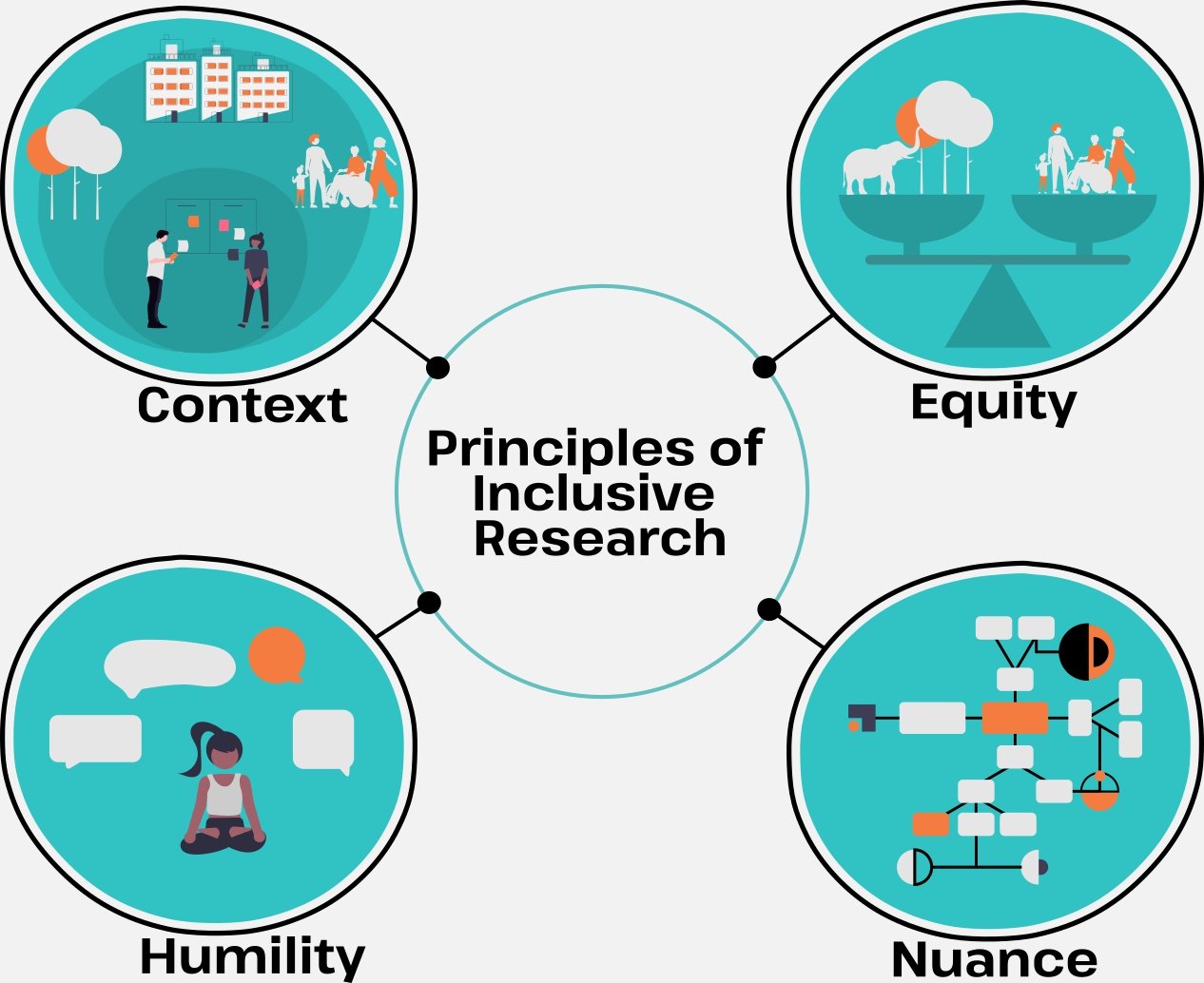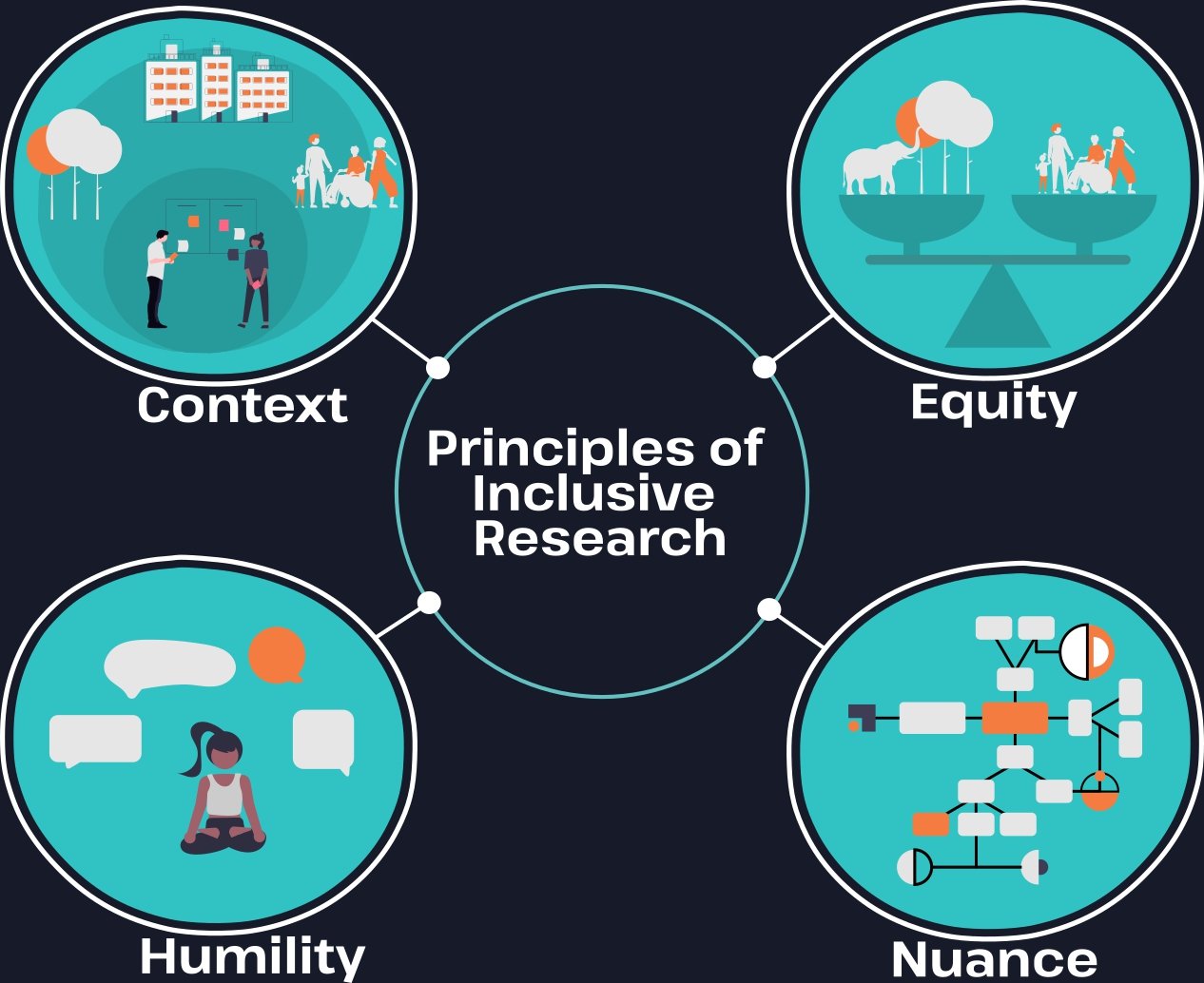Introduction
Aims of The Inclusive Research Hub
The aim of this project is not to provide a step-by-step guide to becoming an ‘inclusive researcher’. That is not possible! Each project, researcher, subject area, and focus of study is unique and as such requires a critical and contextual approach.
There is no one-size-fits-all framework to make research inclusive. Indeed, one of the key lessons of inclusive research is that by homogenising our approach we can cause exclusion and deepen existing inequity.


“The Hub should be seen as a foundation through which your learning can be structured and supported. This foundation can then inform and be informed by your developing practice.”
We aim to provide an overview and introduction to key concepts in inclusive research. We hope to challenge you to think about research in different ways, and to stimulate you to go on and develop changes to your own practice. Given the variety of disciplines within research, we have tried to strike a balance between generality and specificity when introducing concepts. As such, you may need to use additional resources if you want to get into the precise application of a particular concept to your field.
We also aim to provide practical steps and suggestions, where possible, as well as case-study examples. We hope that these will inspire and structure your thinking and further work. Nonetheless, we maintain that there is no substitute for doing the work yourself. Many concepts of inclusive research are underdeveloped for certain fields, in these instances you may need to think creatively about how to apply the principles of other research areas to your own.
In lieu of a catch-all definition of inclusive research, we have come up with some basic principles to guide inclusive research practice:
- Inclusive research acknowledges the context within which it is situated.
- Inclusive research prioritises equity and compassion for humans, animals, and the environment.
- Inclusive research is done with humility.
- Inclusive research is flexible and nuanced, there is no one-size-fits-all way to be inclusive.
These can be thought of as high level principles through which all research should be structured if it is to be inclusive.
We hope the Hub will inspire you, challenge you, and show you that, although there is still much to do, there are many people actively working towards making research a more positive force in the world.

